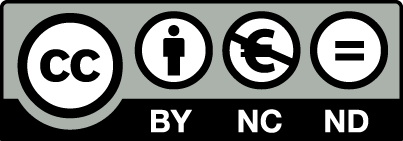Πρόγραμμα παρέμβασης για την καλλιέργεια της μνημονικής ικανότητας και την ανάπτυξη βασικών αριθμητικών δεξιοτήτων σε παιδιά με μαθησιακές δυσκολίες στα μαθηματικά
Περίληψη
Η πειραματική αυτή έρευνα αφορά στη θεωρητική τεκμηρίωση, στο σχεδιασμό και την εφαρμογή ενός βραχύχρονου προγράμματος επανορθωτικής διδασκαλίας για μαθητές Γ΄ δημοτικού με μαθησιακές με μαθησιακές δυσκολίες στα μαθηματικά, οι οποίοι στο Β΄ εξάμηνο της σχολικής φοίτησης υστερούν σε σχέση με τους συμμαθητές τους στην κατανόηση και το χειρισμό βασικών μαθηματικών εννοιών. Το πρόγραμμα περιλαμβάνει την πλήρη κατανόηση του μεγέθους και της τάξης των αριθμών της πρώτης εικοσάδας και της πρώτης εκατοντάδας από τους μαθητές με βάση τις θεωρίες του Piaget και του Bruner, δίνει έμφαση στην από μνήμης εκτέλεση των αριθμητικών πράξεων της πρόσθεσης και της αφαίρεσης, καθώς και στην επίλυση απλών και περισσότερο σύνθετων αριθμητικών προβλημάτων. Περιλαμβάνει επίσης την παράλληλη και συστηματική άσκηση της εργαζόμενης μνήμης και της μνήμης ακολουθιών, καθώς και την εκμάθηση μεταγνωστικών και μεταμνημονικών τεχνικών στην αριθμητική. Στόχος του προγράμματος είναι η ουσιαστική βελτίωση της απόδοσης κ ...
περισσότερα
Περίληψη σε άλλη γλώσσα
This project is an experimental research that concerns the theoretical documentation, the planning and application of a short program of interfering teaching into the classroom. This program addresses to students of the third grade of the primary school during the last six months of the school year, who fall behind the other students in the understanding and handling basic mathematical concepts.It is a program of intervention that is developed in two levels. The first level is reported in the growth of memory skills and the second in the growth of the basic arithmetical dexterities. The planning contains the understanding of the size and the order of the first twenty and the first hundred of the numbers, emphasizes the carrying out of the arithmetical operations with base the theories of Piaget and Bruner, gives accent in the from memory implementation of numerical operations of addition and abstraction, as well as in the resolution simple and complexes numerical problems. The program ...
περισσότερα
 | Κατεβάστε τη διατριβή σε μορφή PDF (83.88 MB)
(Η υπηρεσία είναι διαθέσιμη μετά από δωρεάν εγγραφή)
|
Όλα τα τεκμήρια στο ΕΑΔΔ προστατεύονται από πνευματικά δικαιώματα.
|
Στατιστικά χρήσης

ΠΡΟΒΟΛΕΣ
Αφορά στις μοναδικές επισκέψεις της διδακτορικής διατριβής για την χρονική περίοδο 07/2018 - 07/2023.
Πηγή: Google Analytics.
Πηγή: Google Analytics.

ΞΕΦΥΛΛΙΣΜΑΤΑ
Αφορά στο άνοιγμα του online αναγνώστη για την χρονική περίοδο 07/2018 - 07/2023.
Πηγή: Google Analytics.
Πηγή: Google Analytics.

ΜΕΤΑΦΟΡΤΩΣΕΙΣ
Αφορά στο σύνολο των μεταφορτώσων του αρχείου της διδακτορικής διατριβής.
Πηγή: Εθνικό Αρχείο Διδακτορικών Διατριβών.
Πηγή: Εθνικό Αρχείο Διδακτορικών Διατριβών.

ΧΡΗΣΤΕΣ
Αφορά στους συνδεδεμένους στο σύστημα χρήστες οι οποίοι έχουν αλληλεπιδράσει με τη διδακτορική διατριβή. Ως επί το πλείστον, αφορά τις μεταφορτώσεις.
Πηγή: Εθνικό Αρχείο Διδακτορικών Διατριβών.
Πηγή: Εθνικό Αρχείο Διδακτορικών Διατριβών.













